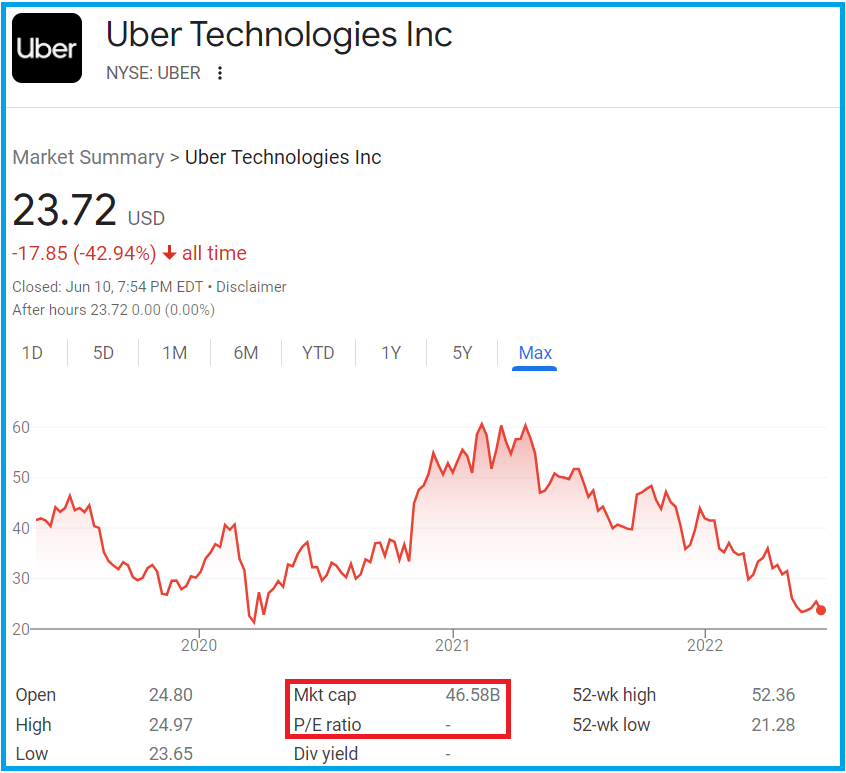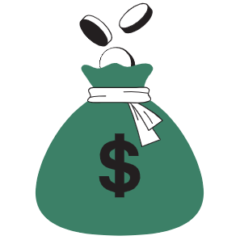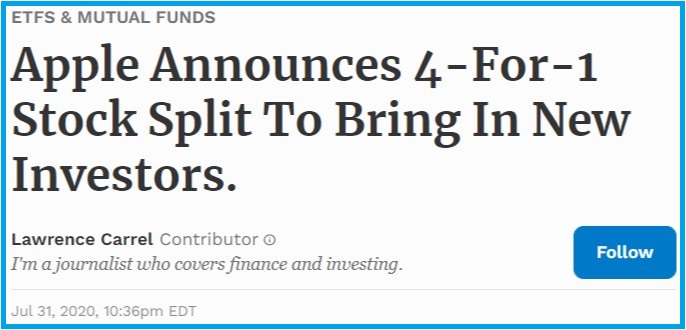The class A shares of Berkshire Hathaway trade at hundreds of thousands of dollars a piece.
The shares of Apple trade at hundred and some dollars a piece.

And the shares of Uber at twenty plus dollars.

So Uber stock is cheaper than Apple stock and Apple stock is cheaper than Berkshire Hathaway stock, right?
Of course not.
A ten-dollar stock is not cheaper than a hundred-dollar stock. A hundred-dollar stock is not cheaper than a thousand-dollar stock. A thousand-dollar stock is not cheaper than a million-dollar stock.
To know why, we’ll start with market capitalization. I’ve highlighted that in red along with the P/E or the price over earnings ratio for each of the businesses shown above.
Market capitalization (market value) of a publicly traded business is its stock price times the number of shares that remain outstanding.
Market capitalization = Stock price x Number of shares outstanding
Apple’s market value as of the date of this post is two-plus trillion dollars. So if you wanted to buy that business in the entirety, you’ll need to come in with that much and probably more money to buy up all the shares that are out there from the likely very reluctant shareholders who might not want to part with their stake as easily.
How many Apple shares are out there in the market? That’s market capitalization divided by the stock price so about 16 billion shares.
Apple can decide tomorrow to split its shares and give you ten shares for each share you own. What will that do to its stock price? It will drop by a factor of 10.
What will that do to the market value of Apple? Nothing except for some dumb reason investors think they are getting a deal and temporarily bid up the price of the shares.
Now the valuation. Life’s not as simple but the price to earnings ratio is the first thing you go to get a feel of how much return you are getting for each dollar of your investment. Berkshire trades at a price to earnings ratio of eight (7.89) so its earning yield which is the inverse of P/E is 12.5 percent. And growing as earnings (profits) grow over the years.
The same yield for Apple is 4.5 percent, so quite a bit more expensive.
And Uber has never made money and is unlikely to make any for the foreseeable future, if at all. It does not have a price to earnings ratio.
So Berkshire even when it trades at hundreds of thousands of dollars a share is in fact a bargain compared to Apple and Apple a much better bargain compared to Uber.
I know and hopefully you know that that’s a very rudimentary view on valuation but you get the point. Stock price in an of itself does not mean anything. It’s the market capitalization and how much profits a business makes in relation to that is what decides whether a business could be had at a bargain or not.
And in this day and age when you can buy fractional shares, a stock’s price is meaningless.
So when you see headlines like this…
Or this…
…just chuckle and go about your way.
Thank you for your time.
Cover image credit – Lucas George Wendt




